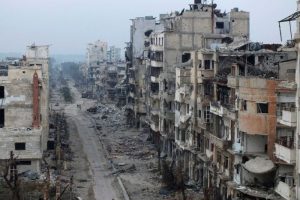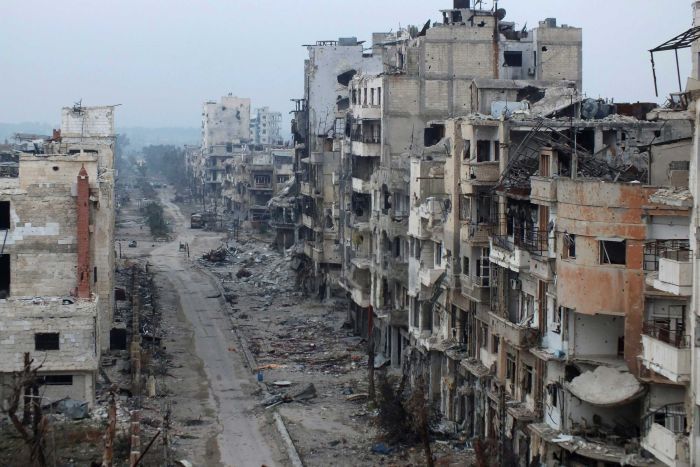 After close to three years of siege, 6,900 women, children and men were finally able to leave the Syrian towns of Foah and Kafraya over the past few days, following a local agreement between parties to the conflict, the United Nations announced in a press release.
After close to three years of siege, 6,900 women, children and men were finally able to leave the Syrian towns of Foah and Kafraya over the past few days, following a local agreement between parties to the conflict, the United Nations announced in a press release.
The two largely Shia pro-Government towns, in the mostly rebel-held Idlib Governorate, had been besieged by non-state armed groups since October 2015, and people trapped there have been in dire need of life-saving assistance, including food and medical care.
The United Nations has not been able to deliver humanitarian assistance to the towns since September 2017.
The civilians were escorted out by the Syrian Arab Red Crescent to the Al-Eiss crossing in southern rural Aleppo Governorate. In addition, 17 persons in need of urgent medical care were brought to hospitals in Aleppo city, accompanied by 21 family members.
On Monday, it was reported by the Office for the Coordination of Humanitarian Affairs (OCHA) that another 430 conflict-affected Syrians were evacuated from Dara’a Governorate to northern Syria, also following an agreement by parties to the conflict. Humanitarian agencies on the ground are responding to the best of their capacities to the most urgent needs in the various reception areas.
“The United Nations was not party to the negotiated agreement or its implementation, but stands ready to provide all people in need with humanitarian assistance wherever they are,” said UN Deputy Spokesperson Farhan Haq during a press briefing at UN Headquarters on Thursday.
“Any evacuation of civilians should be safe, voluntary, well-informed and to a place of their own choosing,” he said adding that “all people displaced through such agreements must retain the right of return as soon as the situation allows”.
The humanitarian crisis in Syria, now in its eighth year, continues to be characterized by unparalleled suffering, destruction and disregard for human life. Some 13.1 million people require critical aid, including close to 3 million people trapped in besieged and hard-to-reach areas. Despite enormous challenges, the UN and its humanitarian partners continue to deliver life-saving assistance and support to millions of people across the country every month, the press release said.
